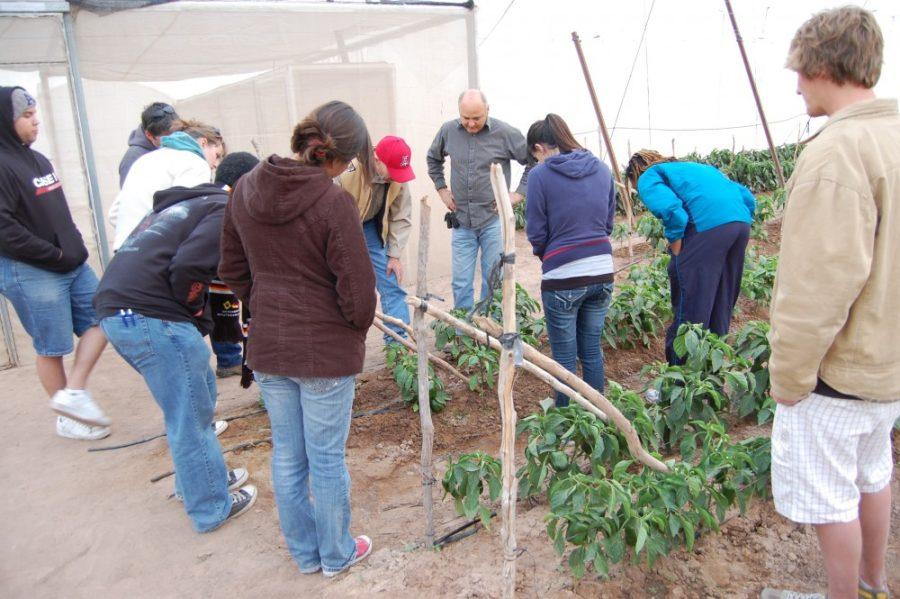The Bachelor of Science degree in sustainable plant systems is one unique major among others at the UA. A collaboration with the school of plant Sciences and the department of soil, water and environmental science, the sustainable plant systems program is for students seeking to learn about how to produce and manage large quantities of plants in an environmentally friendly way.
“The focus of this program is really to promote more sustainable food processing systems,” said Tanya Quist, a faculty adviser in the School of Plant Sciences.
Quist earned her doctorate at Purdue University in plant environmental stress physiology and advises students from both the sustainable plant systems major and the plant sciences major, which share some similar coursework.
Quist explained that the plant sciences major is more geared toward students looking to do research in fields such as cell biology or biotech, whereas sustainable plant systems allows students to choose one of four tracks—controlled environment agriculture, environmental horticulture, agronomy or fresh produce safety—to meet their specific interests and career aspirations.
When the sustainable plant systems degree was created in 2006, it went by the name of crop production and had only 12 students. Since then, the major has grown to what it is today and boasts a student count of around 80.
One of these students is Taylor Sanders, a sustainable plant systems senior with a focus in agronomy. Sanders said that her interest in plants is long-standing and after learning how to garden and becoming more interested in the process, she decided to pursue it as a major.
Following her graduation in May, Sanders is planning to move to Colorado to work on a farm that specializes in raising animals and vegetables.
She hopes to do more than farming in the future as her main passion is in food waste. She is currently involved with the UA Compost Cats, an organization that strives to prevent food and plant waste from entering landfills and instead using it as soil for landscapes and gardens around Tucson.
“My dream job would be to run a grocery store that would use food that was originally going to be put into a landfill and [sell it] at a reduced price,” she said. “We can address food insecurity with food waste.”
Sanders’ passion for her field of study is evident and similar to that of other students Quist has advised.
“Working for the campus arboretum or doing a field study with a researcher—those kinds of experiences help students become professionals,” Quist said. “It’s not just something you know anymore or something you do, it’s who the student is.”
Sustainable plant systems majors have a variety of options when it comes to post-graduation plans.
Depending on their chosen track, students have gone onto careers in fields such as production agriculture and landscape supervision, they work for the Peace Corps and the United States Department of Agriculture, conducting horticultural research at chemical companies or in plant breeding.
The possibilities for students in this major are limitless and plentiful.
“There’s still a demand for more students for jobs that are available right now,” Quist said.
The contemporary world is facing some difficult questions when it comes to producing food for the ever-growing world population while protecting the environment for generations to come, and students in fields like sustainable plant sciences are the people who will be making steps to solve these problems.
When asked what she wanted others to know about her major, Sanders said, “[Sustainable plant sciences] is such an important thing to study because you need to know where your food comes from … and what the process looks like and how it’s made, now more than ever.”
For more information on the sustainable plant systems major and minor, visit their page on the University of Arizona Department of Soil, Water and Environmental Science website.
Follow Victoria Pereira on Twitter.









